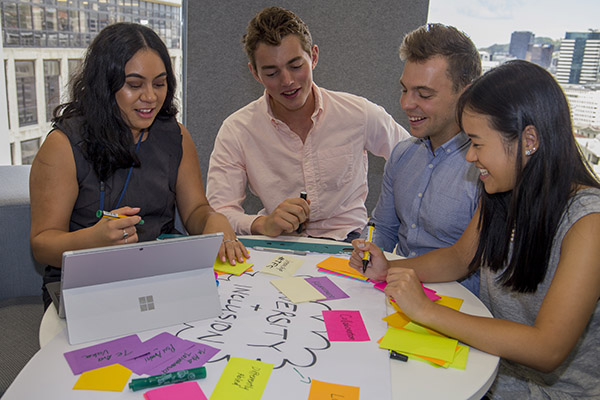 Covid-19 may have highlighted issues of racism in New Zealand, but our changing ethnic diversity was already increasing the importance of cultural competency in our workplaces.
Covid-19 may have highlighted issues of racism in New Zealand, but our changing ethnic diversity was already increasing the importance of cultural competency in our workplaces.
Addressing cultural stigmatisation was the theme of a recent Diversity Works New Zealand Roundtable webinar featuring Race Relations Commissioner Meng Foon, Massey University’s Distinguished Professor Paul Spoonley and HR specialist Gita Jayaram.
Diversity Works New Zealand Chief Executive Maretha Smit told the webinar that throughout history, pandemics and epidemics have bred misinformation, hysteria and scapegoating, ultimately leading to a surge in racial and ethnic discrimination.
“The World Health Organization recognized the danger of misinformation and stigma when, in 2015, it issued guidance for naming infectious diseases, recommending that they do not include geographic locations, people’s names, or cultural or population references.”
Yet in 2020, some of the so-called leaders of the western world still insist on referring to Covid-19 as the Chinese virus, she said.
Meng Foon confirmed that the Human Rights Commission and the New Zealand Police reported an increase in complaints of racism, mainly impacting Chinese people, as fears around Covid-19 increased. Netsafe also reported a 200 per cent increase in online racism during the lockdown period.
Social cohesion is “very thin” in New Zealand now, he said. On the surface most New Zealanders get on but that can change when they are threatened. “Covid’s intensifying that… we are losing our jobs, people are going to be homeless. Immigration is an issue now - because we’ve got such high employment, do we need new migrants?”
Distinguished Professor Spoonley said that even without Covid-19, New Zealand is changing, and ethnic diversity is now a feature of our society and our workplaces.
“In 10 years, Asian communities will outnumber Māori, and our Pakeha community is getting older. We are going to have an aging, but much more culturally diverse workforce.”
Those changes, said HR specialist Gita Jayaram, mean that being able to accept people and quickly understand how we can add value to each other will become a key aspect in being sustainable, both as businesses and individuals.
“Sustainability comes from engaging people who think differently to us and that’s really challenging,” she said.
“Cultural intelligence is about creating an environment where it’s ok to be challenged; it’s ok to have to ask more questions before you can fully understand what is being shared.”
But that’s going to mean good leaders will need to step up to difficult conversations.
Gita said that as someone who is female, Indian and Hindu, she has been in situations where she has felt demeaned or dismissed.
“It’s very difficult, in that moment, to stand up for yourself. It’s so powerful if someone else asks, ‘Do you think that’s a good thing to say? Why did you say that?’”
It’s about the tone and creating an opportunity for further dialogue, she said.
“The most important thing is simply understanding that we are all different. You and I might look the same, but we will be different because we will have different experiences and different values and we’ll have an opportunity to explore that together if we both pay attention.”
Meng Foon agreed that it was important for people to be brave enough to stand up for those being targeted by racist behaviour.
“Teach people tools and how to manage situations, Review your current actions and code of conduct. Getting people involved in decision making helps.”
Often solutions come from the top down, when they are already available at the coalface of organisations, he said.
In his role as a judge of the Diversity Awards NZ™, Professor Spoonley said he looks at the leadership of the organisation. “And by leadership I don’t mean those who are necessarily the chief executive or a senior manager. Quite often it’s the people on the shop floor who are providing leadership in terms of how they engage with others. I look for people who are diversity aware but also will enable those honest conversations.”
It’s also important that workplaces are high-trust environments, he said, and that people from a different religious, ethnic or linguistic community feel safe and valued.
Hate speech can be problematic when it occurs in the context of comedy. “A lot of people who are not the targets of racism or prejudice or discrimination, tend to see other people who take it more seriously as exaggerating the issues,” Professor Spoonley said.
“We need partners in this journey, and we need partners like a chief executive who says, ‘Well I find that offensive, and I find it offensive for this reason.’
“The challenge, Covid or otherwise, is what are we going to do to improve our workplaces as places where diversity is going to be essential because I’m quite clear that the future of organisations and firms in this country is tied to the diversity of this country. And without diversity recognition, the success of the business is in peril.”
The Roundtable webinar series, hosted by Diversity Works New Zealand Chief Executive Maretha Smit, brings together business and academic thought-leaders to discuss issues that will be crucial for workplaces in a post-Covid-19 world. Watch the full webinar, and others in this series, here.


